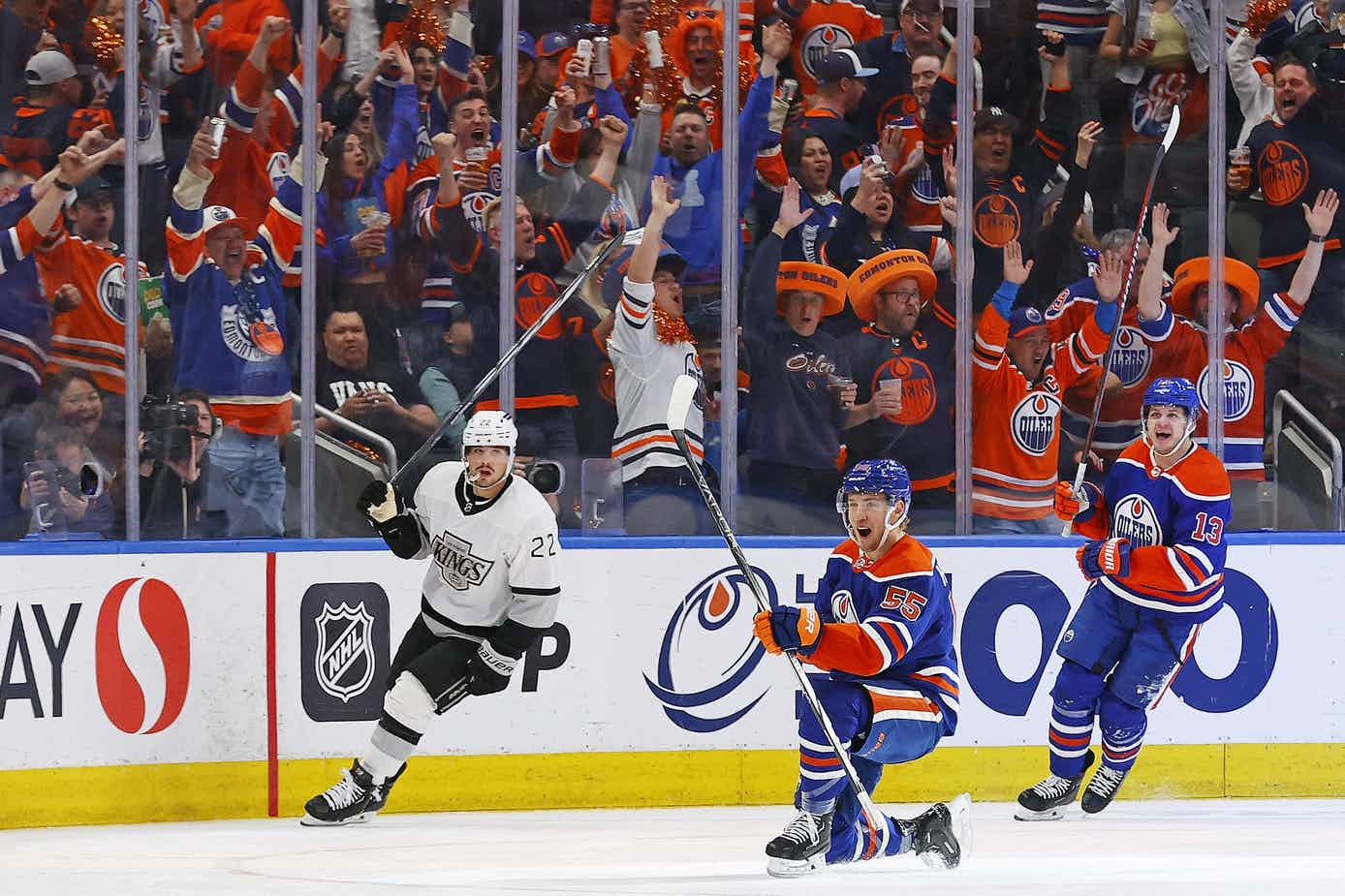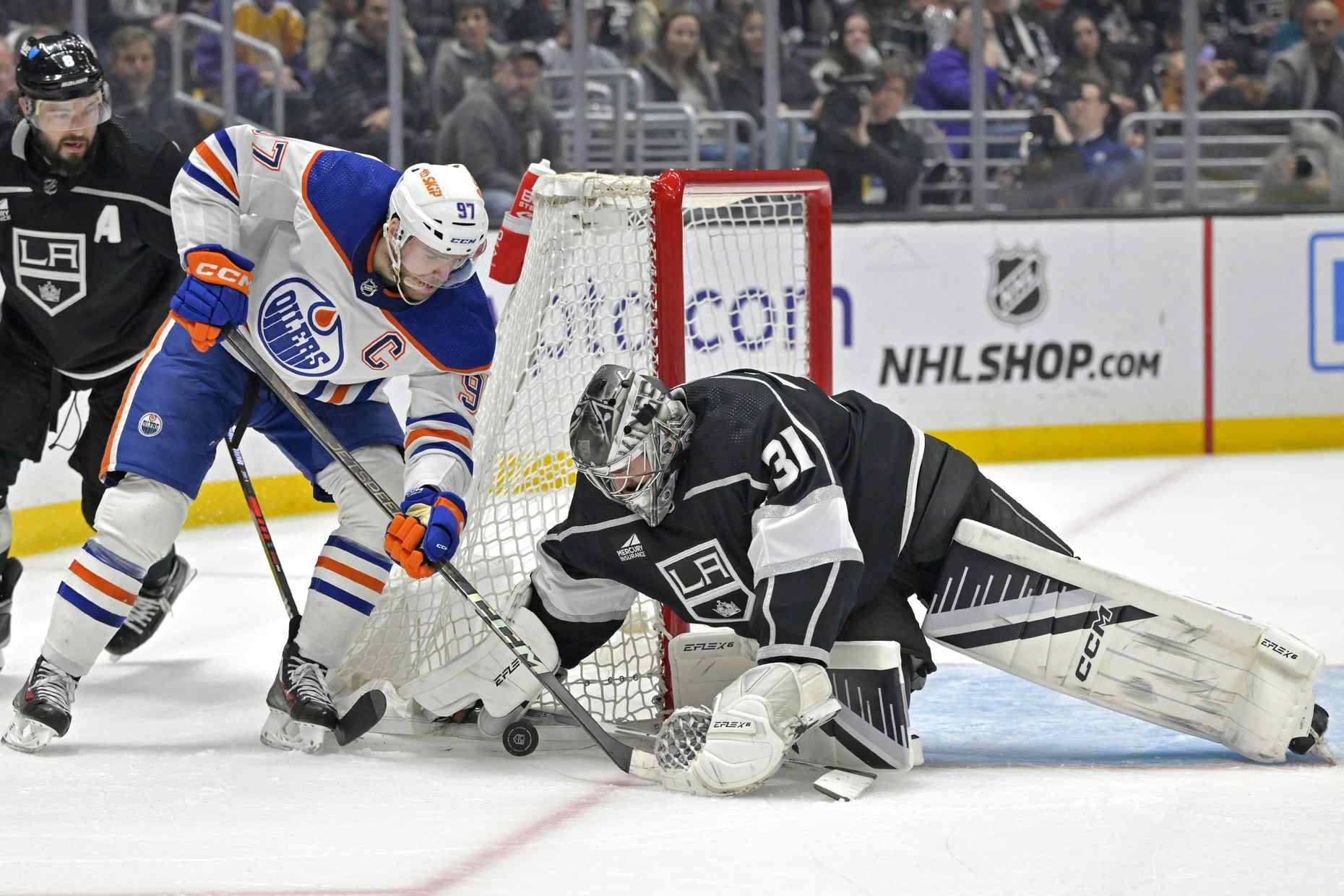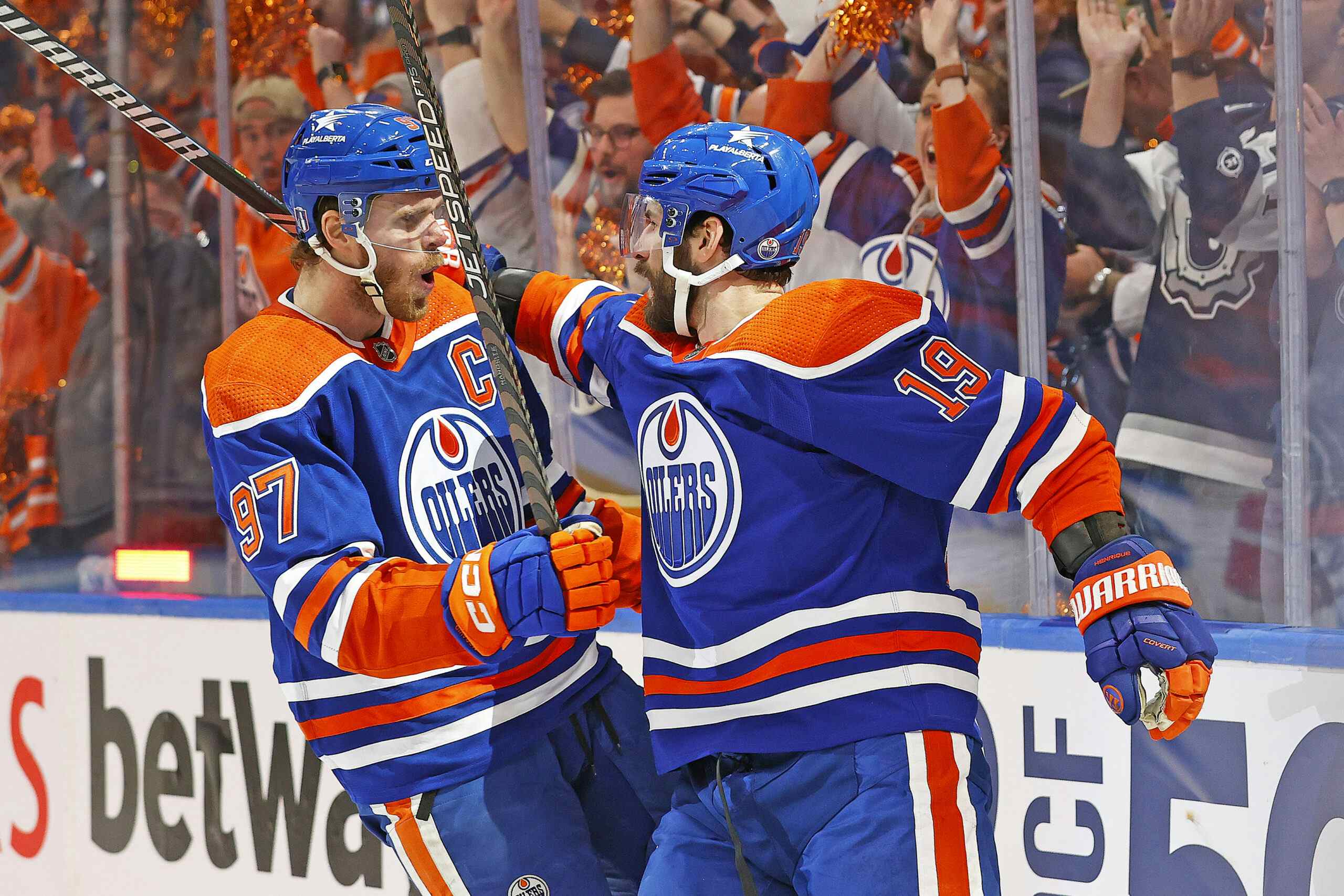Justin Schultz has Norris potential. He also has a bad contract.

In his press availability announcing the news of the Justin Schultz signing, Edmonton Oilers general manager Craig MacTavish courted controversy by saying that the young defender “has Norris Trophy potential.”
He might be right about that. The ironic thing is that if he is, it just makes the terms of Schultz’s new deal even worse.
Norris Potential

“I go back to when we first signed him during the lockout, when he went to the American Hockey League and led the American Hockey League in scoring as a defenceman in his first year,” MacTavish said. “Things [like that] just don’t happen to average or good players; those things only happen to great players and I feel like Justin is going to be a great player and certainly a great Oiler and I think time will bear that out.”
I don’t think there’s a legitimate argument to be made that Schultz doesn’t have very high-end offensive potential. His defensive game is more subject to debate – MacTavish made a point of saying that he felt Schultz’s defensive play was better than the perception of his play – but it’s the offence that’s worth keying in on here.
The last NHL defenceman to win the Norris with fewer than 50 points (disregarding 2012-13, when P.K. Subban won it with 38 points in 42 games) was Rod Langway 30 years ago. If we omit Langway, we have to go back to 1967-68 when Bobby Orr missed 28 games and won the award after recording 31 points in 46 games.
In other words, with the lone exception of Langway the Norris Trophy has been an award handed over to exceptional offensive defencemen for the entirety of the post-Original Six era.
Schultz has pretty significant offensive potential. If he realizes it, rounds out his defensive game a little and keeps playing monster minutes, he just might put together the kind of season that voters reward. Offence doesn’t just get paid in the NHL; it wins awards.
That’s the Problem

Justin Schultz’s one-year, $3.675 million contract is significantly more money than a defenceman with his accomplishments and at this point in his career has any right to expect. To a point, that doesn’t matter: there is value in having the guy in camp and rewarding a piece the Oilers believe in and all the rest of it.
The problem is that the benefits are disproportionately short-term. In a year where “questionable” understates the Oilers’ centre depth, a year where the goaltending is uncertain and the whole left side of the defence is patchwork while the team waits for prospects to arrive, the club is spending a pile of money to make sure that Schultz shows up for Day 1. If they were a contending team with cap space, this might be understandable; but they aren’t and consequently it isn’t.
And in exchange for this somewhat irrelevant short-term benefit, the Oilers are surrendering long-term advantage. This is a contract that makes it clear that there will be no hometown discount – Justin Schultz’s camp is going to (understandably) fight for every penny. Negotiating against people like that, is a better situation imaginable than after a year where the player’s offence was mediocre and his pairing got lit up defensively?
Instead, the Oilers chose to hand leverage to Schultz’s camp.
If Schultz has a poor year, Edmonton will have to decide between qualifying him at an ugly number based on his $3.675 million contract and letting him go for nothing (there is a third, rarely-used option – club-elected arbitration in the hopes of knocking back his salary). In other words, Schultz is guaranteed the choice of significant money or free agency even if he has a garbage year; that’s a nice place to be.
If, on the other hand, Schultz has a great year – the kind of year MacTavish and Schultz’s representation expects – they’re suddenly in the same place as they are now but with the disadvantage of negotiating with a guy coming off a great year rather than a terrible one and in an offseason where the salary cap has spiked significantly thanks to the new Canadian TV deal.
A bridge deal is typically a tradeoff for a team, with two major pros and one significant con:
- Pro: Team gets more information before making a long-term decision, reducing risk
- Pro: Team gets a couple of years at a relative bargain price
- Con: Team will need to pay more money for a proven player a couple of years down the road if all goes well
The Oilers here have managed to get the negatives of a bridge deal without the payoffs. They get the minimum amount of extra information possible – one year’s worth. There’s no bargain here; Schultz is being paid basically the same amount of money that Jake Gardiner took on a long-term deal despite an NHL career that isn’t any better. And a year from now if all goes according to plan the Oilers will be in a lousy bargaining position for a long-term deal.
Looking at the deals handed to guys with similar levels of experience and performance – Cam Fowler and Kevin Shattenkirk come to mind – it’s really hard to look at Schultz’s new deal and think that the Oilers did well here. They paid similar money for a player in a very, very similar situation but got one year instead of four or five.
RECENTLY BY JONATHAN WILLIS
- Andrei Loktionov has offers on the table, but no decision is made yet
- Martin Gernat, training camp surprise?
- Anton Lander, the forgotten man
- Justin Schultz: The Subban comp
- NHL changes draft lottery rules – and the timing works nicely for Edmonton
- 2014-15 goals projection series: Hall, Eberle, Nugent-Hopkins, Perron, Pouliot and Purcell, Yakupov, Arcobello and Draisaitl, Forward overview, Defence overview.
- Follow Jonathan Willis on Twitter
Recent articles from Jonathan Willis





